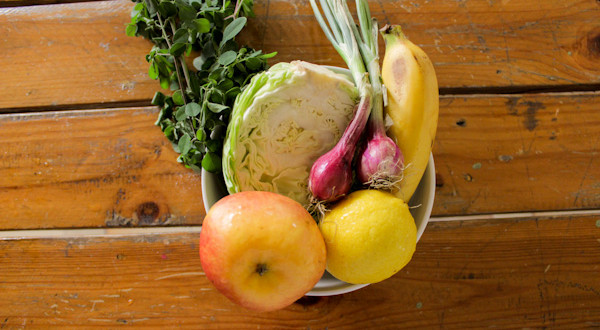Why Eating Clean Could Be Making You Fatter
Why Eating Clean Could Be Making You FatterDiet for a while, then binge. Then diet again because you got bloated and gained weight. Then binged again because it’s your cheat day so better eat everything because the diet is back on tomorrow. Then you diet again and go back to eating clean because your abs are gone from your cheat-day-turned-cheat-week. Then you binge again because food is just too good and you love to eat so you put your diet off another week or two. When you finally go back to dieting again, you don’t even want to consider eating clean because it’s almost summer and you’re out of time. So you look up quick fixes and resort to crash diets/ fad diets.
Does this sound like you? No judging here because trust me, I’ve been there. I know what it’s like to be stuck in that seemingly endless diet-binge-diet harder-binge-harder cycle. So here’s my take on that:
First.
Can too much “healthy food” or “eating clean” make you fat? Yes, definitely. Can “junk” or “cheat meals” also make you fat? Of course.
So what’s the difference? We know that both healthy and junk food can make you fat. But HOW exactly does that happen?
Energy Balance
Anything in excess, has the potential to be stored as fat. Anything.
Anything in excess, has the potential to be stored as fat. Anything.
Anything in excess, has the potential to be stored as fat. Anything.
One thing that a lot of people aren’t aware of in the context of dieting is energy balance. The body burns energy, but it also needs a supply of energy through food. When the body burns more than we consume, it burns stored fuel. If there’s too much fuel coming in, the body will store the excess for later use. This is the simplified version of course, so feel free to delve deeper and do your own research. You can start here.
When one doesn’t know how many calories he/she is taking in, it could result in weight loss, weight maintenance or weight gain. Just because you’re eating oatmeal, fruits and celery with peanut butter doesn’t mean you’ll lose weight. If you eat 20 kilos of oatmeal, 10 kilos of fruits and 10 jars of peanut butter, you’ll still gain weight because you’re consuming more fuel than your body needs. Extreme example, but you get the point. The amount matters even if it’s considered a “clean” food.
So how come other people lose weight when they eat “clean” and not when they eat “junk”?
Healthy foods make you full
Healthy foods like oatmeal and sweet potatoes contain dietary fiber, which slows down digestion. By staying in your system longer, it means that you won’t be hungry as quickly, versus something with no dietary fiber such as candy. When you’re satiated, you are less likely to overeat. If you eat 3 kilos of romaine lettuce, you’ll probably want to puke because you’re so full.
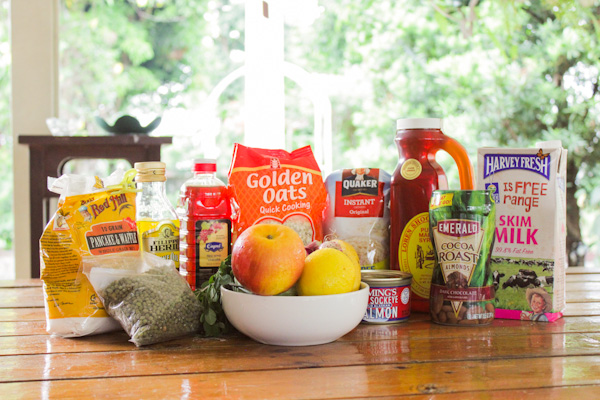
Healthy foods are often lower in calories
Healthy food is often lower in calories, so you’re less likely to go over your daily recommended caloric intake. For example, 200 calories of oreos will not fill you up, unlike 200 calories worth of vegetables.
“Junk” foods can be calorically dense
If you were to eat oreos with milk until you feel full, that could easily be 500 calories worth, versus something more macro-friendly such as a raw salad with light dressing.
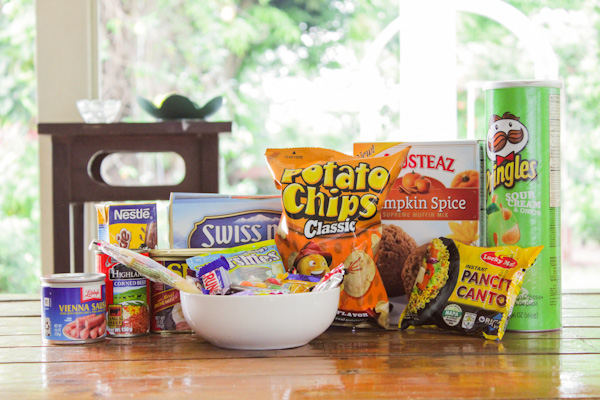
So why not just eat healthy food to lose weight then? Why bother with “junk” food at all if it’s calorically dense?
Second.
We’re all for eating “healthy” food or whole foods such as fruits, vegetables and lean meats. If you’re following a bodybuilding-friendly macronutrient split, you’re going to be eating a lot of “clean” foods by default. However, if you told me that I can only eat “clean” food, I am more likely to crave the foods that I’m not allowed to have. In other words, I’ll want the prohibited (bawal) foods more than I want the “clean” foods. And when I do encounter the prohibited (bawal) foods, I’ll probably eat as much of it as I can because of that “on-diet” and “off-diet” switch.
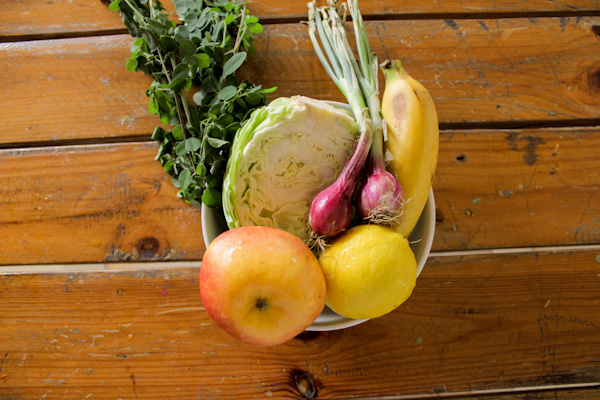
Eating only healthy foods isn’t sustainable for most people, and by restricting certain food groups or food sources, you could be setting yourself up for a binge when you have to go “off” of your diet, such as during a family gathering, night out or unplanned food trip. You will go off at some point because that’s life, and if you don’t know how to manage those times when you’re eating foods off a prescribed “clean” foods list, you could set yourself back. If it’s just one or two foods, it doesn’t always have to turn into a full “cheat day” once you know how to track your macros.
Third.
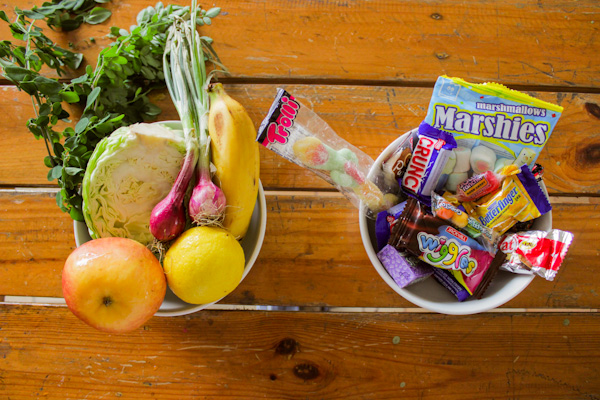
Contrary to what some people think, flexible dieting/IIFYM isn’t about eating sweets and crap all day. But what is “clean food” anyway, and what is “junk food”? It’s hard to even define those terms because a lot of foods can fall in that gray area in between. Is anything with sugar considered bad? Is anything that comes in a box considered junk? Is anything organic considered healthy? How does one even practice eating clean when “clean” can be defined in so many ways. There is no one definition of “clean” food or “junk” food.
Fourth.
Just because eating clean works for someone else doesn’t mean that it’ll work for you. We’re all different, so one size doesn’t fit all. Remember that the context matters as well. Someone who requires 800 grams of carbs a day will probably go way over his/her dietary fiber intake if all of those 800 grams of carbs were to come from whole foods. But for someone in contest prep who’s in the low 100s or 200s, then there won’t be enough space for the “junk” foods.
Find your balance between whole foods and not-so-whole foods. Some will do mostly “junk” with little to no whole foods. Some will do mostly whole foods with just one or two “junk” foods. We all have different ratios that work for us. How you decide to split up those ratios is up to you to decide because we all have different goals.
The bottom line is sustainability.
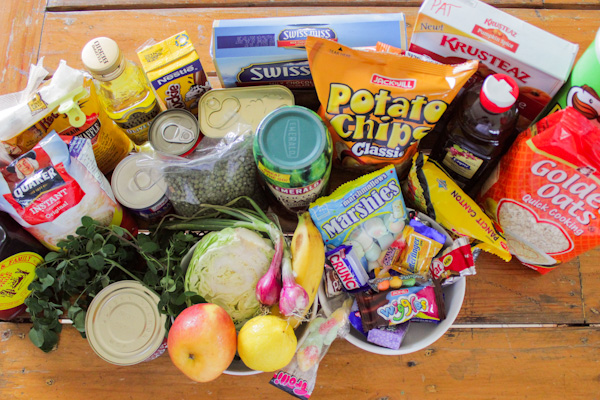
Eating clean has been proven to work, time and time again, but they aren’t the only protocols that work for weight loss. If eating clean is what you prefer, more power to you. Absolutely nothing wrong with that. But if you’re having trouble planning your meals or have a hard time adhering to a strict meal plan, know that there are other alternatives such as flexible dieting/IIFYM that can work, too.
Mico and I eat lean protein sources such as egg whites, ground sirloin, chicken breast and fish every single day. We eat fruits and vegetables every single day. We rotate rice, pasta, oatmeal, bread, saba and sweet potatoes (camote), too. But if we want something that’s not as “healthy” like pizza or ice cream, we also have it. Probably 70-80% of our food is considered “healthy,” and the rest is whatever we want or happen to have.
What’s your idea of sustainable? And what’s your take on eating clean? We’d love to know.
Please share this article if you found it helpful!
 FITME.PH Fitness + Lifestyle + IIFYM
FITME.PH Fitness + Lifestyle + IIFYM
